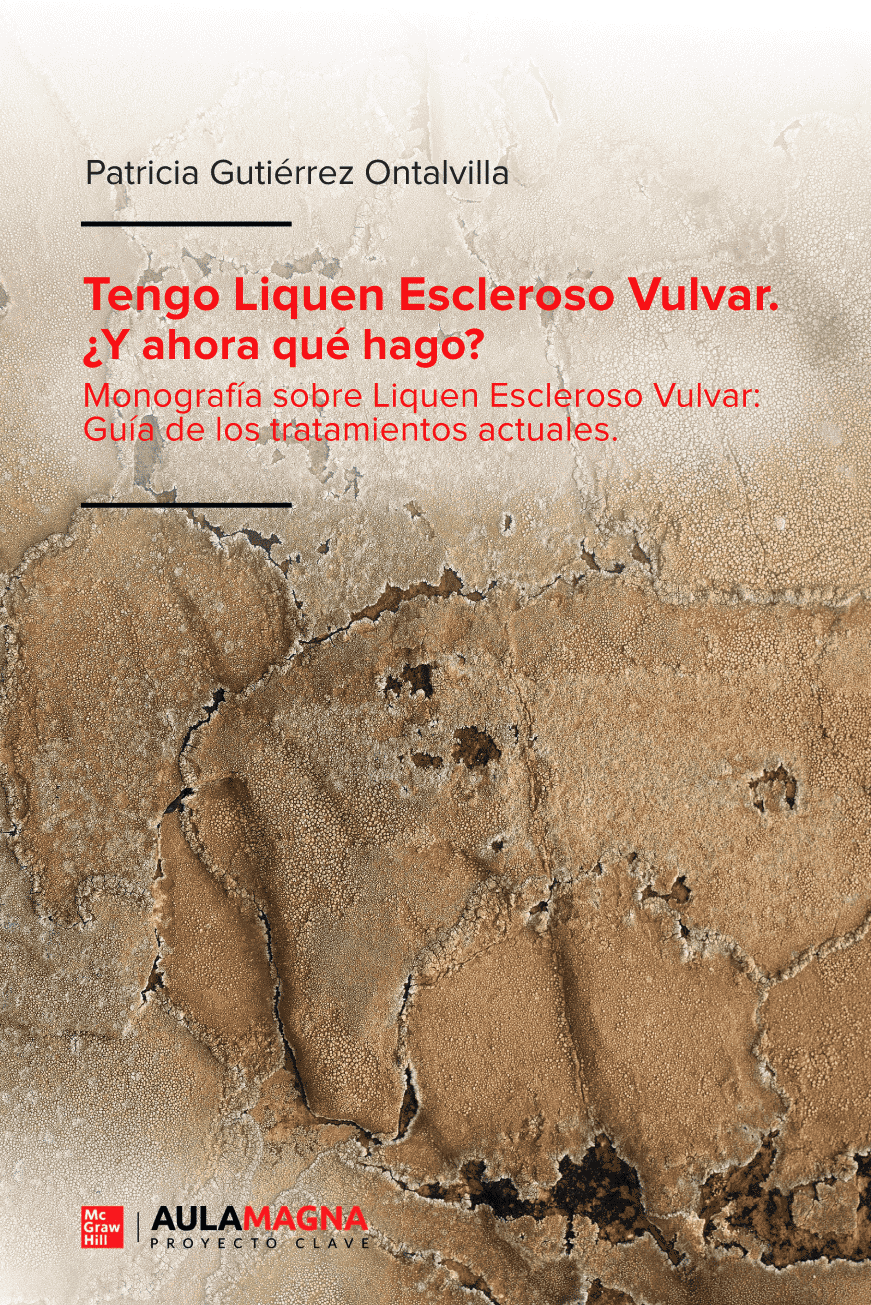Vulvar Lichen Sclerosus
Lichenia Treatment ®
Do you know this new treatment for Scleroatrophic Lichen?
Vulvar lichen sclerosus (VLS) is a skin disease of the anal and genital area.
It is not a sexually transmitted disease. It is not contagious.
The cause of LEV is unknown, although everything indicates that it is autoimmune since it is associated with pathologies of this type (autoimmune) in almost 30% of patients. It is most frequently associated with autoimmune thyroid pathologies (Hashimoto’s thyroiditis), but also with vitiligo, alopecia areata, etc.
Can LEV evolve into Vulvar Cancer?
It has been seen that this type of lichen sclerosus, if left untreated, can progress to vulvar cancer in 6% of patients.
Complex diagnosis
It is a disease that at first can be confused with repeated urinary infections and genital fungal infections since it causes itching and burning. However, as lichen sclerosus progresses, pain also appears at rest, and dyspareunia (pain with sexual intercourse). It has been seen that as the disease progresses, the genital labia minora and majora disappear, the clitoris becomes buried under a scar layer and the vaginal opening (introitus) becomes very narrow. Erosions, fissures and scratching injuries appear that further contribute to pain, bleeding and burning in the vulvar area.
LEV and quality of life
Lichen scleroatrophicus on the vulva seriously affects the quality of life and sexual function of patients who suffer from it.
The first-choice treatment for lichen sclerosus in the vaginal and perianal area is ultra-potent corticosteroid ointments (0.05% clobetasol propionate). These creams seem to control symptoms in 60-70% of cases, but only produce 20% remissions.
Recent studies have seen that stem cells derived from the patients’ own fat have anti-inflammatory and immunoregulatory properties, which have beneficial effects on vulvar lichen sclerosus.
On the other hand, the growth factors of platelet alpha granules in platelet-rich plasma (PRP) could have a beneficial effect due to their regenerative properties.
As principal investigator, I launched the Liquenia Clinical Trial (EudraCT: 2016-003952-63) in 2107. In this research, two sessions of adipose tissue and PRP were applied to those patients with moderate-severe vulvar lichen sclerosus who had not noticed improvement with ultra-potent corticosteroid creams.

Request information about the Tratamiento Liquenia ®.
In the analysis of the results of the Liquenia Treatment, the following was seen:
- Significant improvement in pain, burning and pain during sexual intercourse (dyspareunia). It also produced an improvement in itch in terms of duration, intensity, degree and disability from the first month after the first infiltration.
- The Liquenia Treatment produced an improvement in erosions and fissures and in the pathological anatomy (inflammation parameters) of the biopsies of patients with vulvar lichen sclerosus.
- The Liquenia Treatment produced a significant improvement in the quality of life of patients with vulvar lichen sclerosus.
- After the Liquenia Treatment, patients significantly improved sexual function, also seeing an increase in lubrication.
Links of interest:
- Excellent Cum Laude Doctoral Thesis by Dr. Patricia Gutiérrez Ontalvilla (MD, PhD) with the title: Estudio piloto del tratamiento del liquen escleroso vulvar mediante tejido adiposo asociado a plasma rico en plaquetas autólogo
- Hemotrial (Sistema Nacional de Ensayos Clínicos): Ensayo Liquenia
- EU Clinical Trials: Liquenia Trial
- Instituto de Investigación Sanitaria La Fe (PDF)
- Fundación Nixarian: Private non-profit organization dedicated to the dissemination, research and treatment of vulvar diseases
- Liquenia.es: website dedicated to the Clinical Therapy of Scleroatrophic Lichen or Vulvar Sclerosus.
Patent Pending: P202030879

